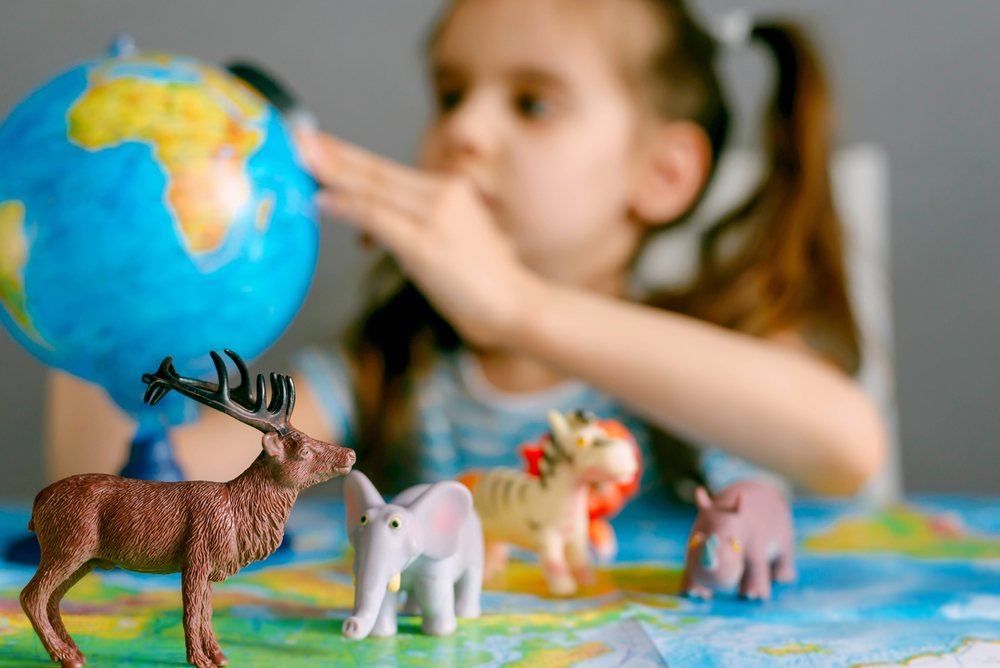Understanding seasons Normal Geography Worksheets for Ages 4-7
4 filtered results
-
From - To
Discover the wonders of seasons with our engaging "Understanding Seasons" geography worksheets, designed for children ages 4-7. These interactive resources make learning about the four seasons—spring, summer, fall, and winter—fun and enjoyable. Each worksheet includes vibrant illustrations and age-appropriate activities that strengthen observational skills, enhance vocabulary, and stimulate critical thinking. From relatable seasonal changes to weather patterns, your child will explore the magic of nature's cycles while developing essential knowledge of our planet. Perfect for home or classroom use, these worksheets offer a fantastic way for young learners to connect with the world around them through play and discovery.
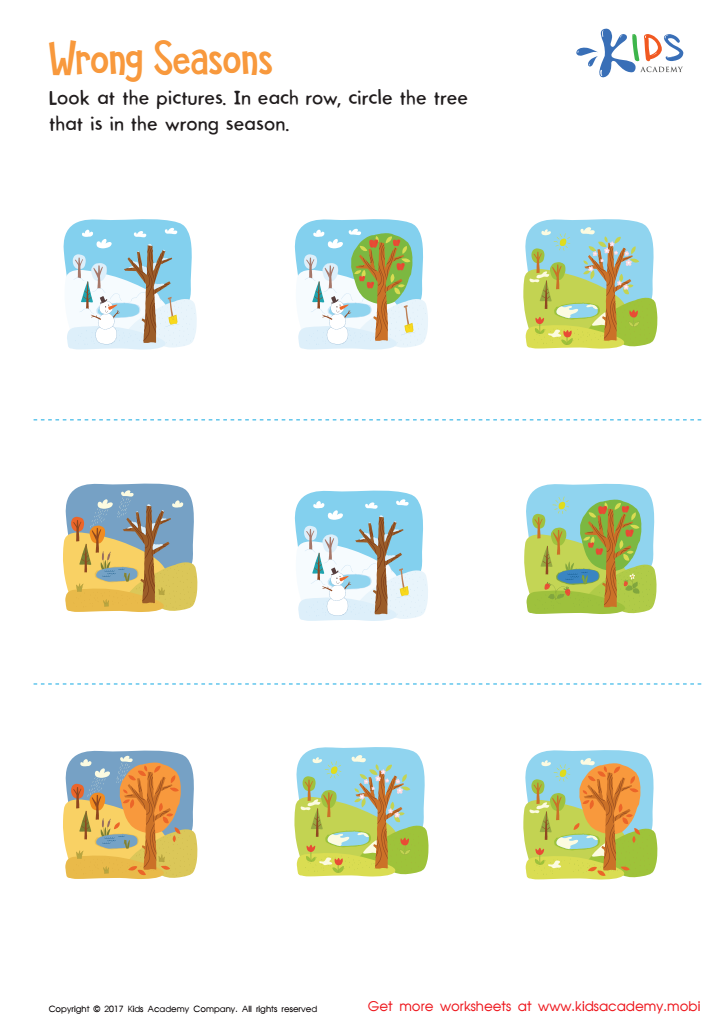

Wrong Seasons Worksheet
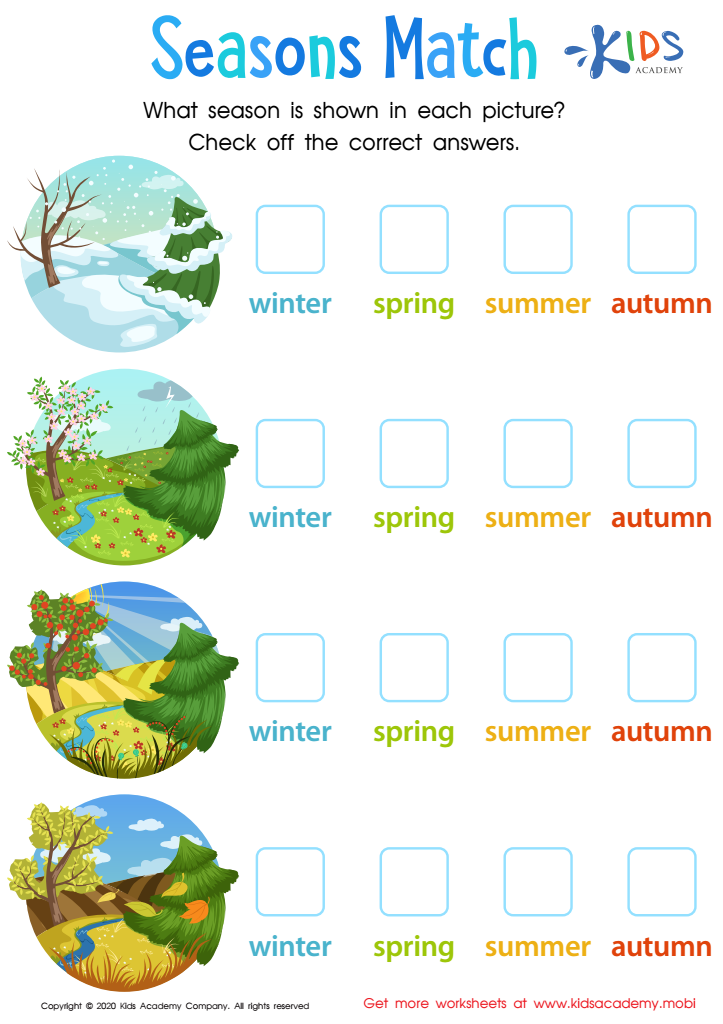

Seasons Match Worksheet
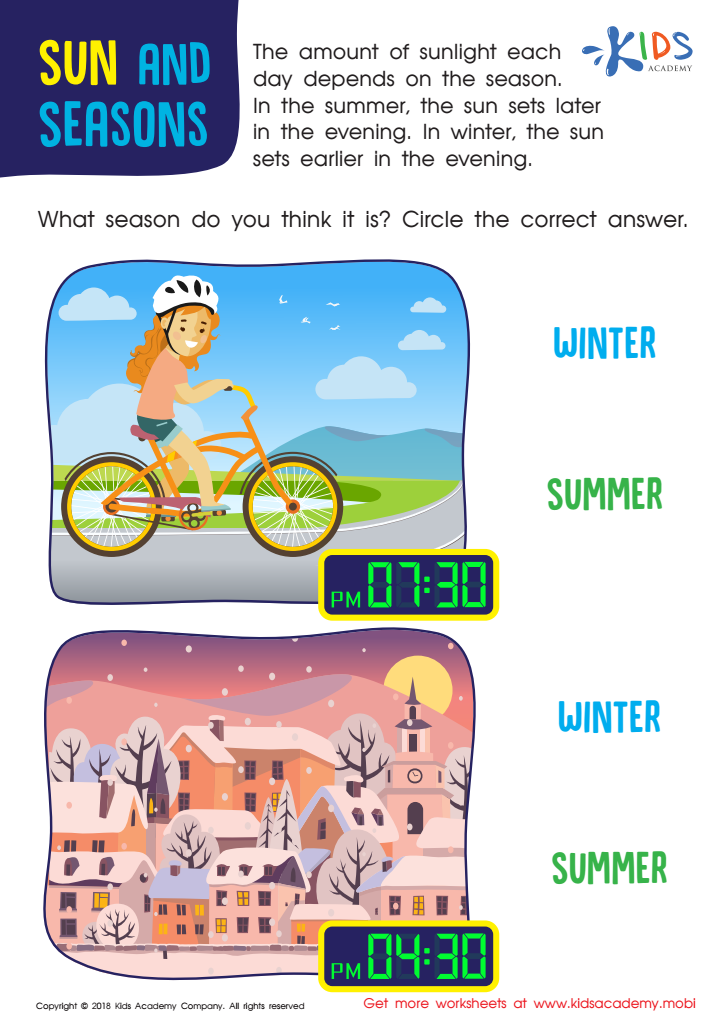

Sun and Seasons Worksheet
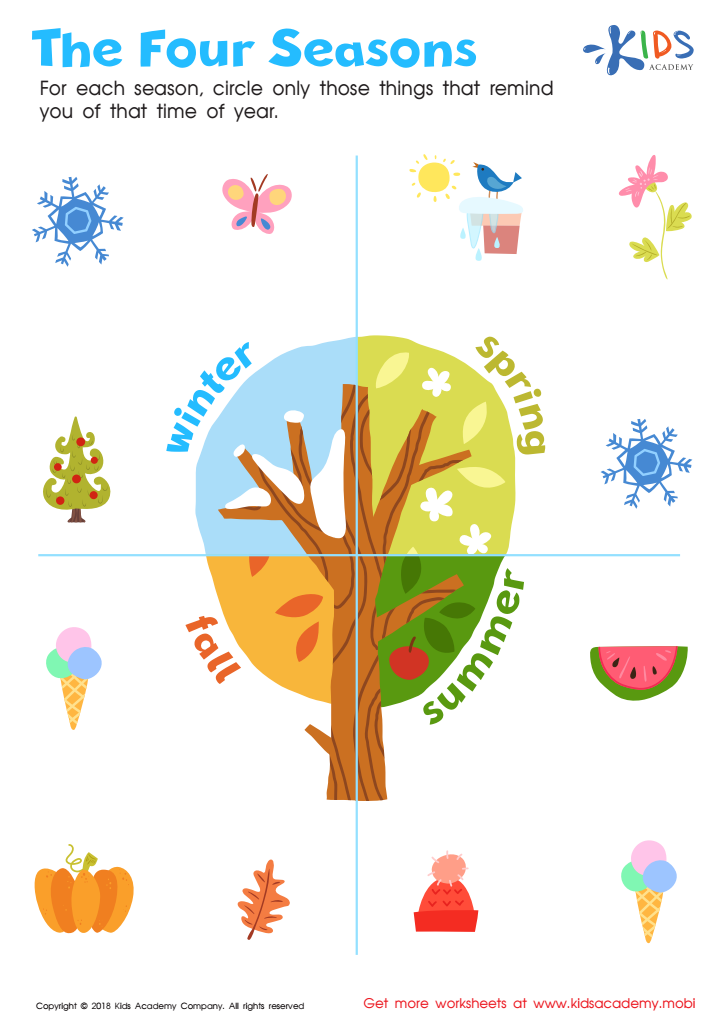

The Four Seasons Worksheet
Understanding seasons and basic geography is crucial for children aged 4-7 because it lays the foundation for their awareness of the world around them. During early childhood, children are naturally curious about their environment. By teaching them about the four seasons—spring, summer, autumn, and winter—parents and teachers can help children recognize changes in weather, nature, and daily life, fostering their observational skills and critical thinking.
Seasons also provide a perfect setting to explore concepts such as time, change, and growth, enhancing cognitive development. For instance, recognizing when trees lose leaves in autumn or when flowers bloom in spring encourages children to observe patterns and draw connections. These experiences promote curiosity and engagement with learning.
Moreover, understanding geography helps children build spatial awareness and a sense of place. Learning basic geography enables children to identify their local area, recognize different landforms, and appreciate cultural diversity—creating a foundation for social studies later on.
Ultimately, teaching about seasons and geography at this age nurtures a love for learning, encourages outdoor activities, and connects children to their environment, making it a vital part of holistic development. Parents and teachers play a key role in fostering this understanding, enhancing children's overall education and well-being.

 Assign to My Students
Assign to My Students






